Afghanistan War, Civil Liberties, FBI Intrusion, Guantanamo, Habeas Corpus, Human Rights, Iraq War, Military Tribunal, Surveillance, Targeting Muslims, Torture, Truth to Power
Podcast: Play in new window | Download
WBAI Listeners Click Here For June 1, Rundown
Torture And The Need For Justice – Wednesday June 3, at the New York Society For Ethical Culture.
Updates:

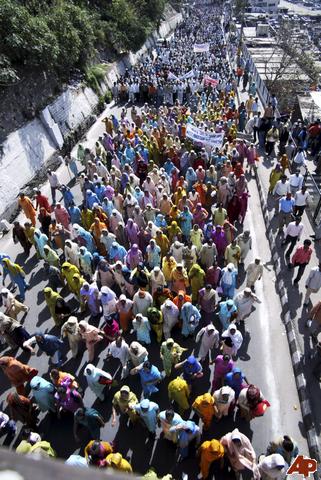
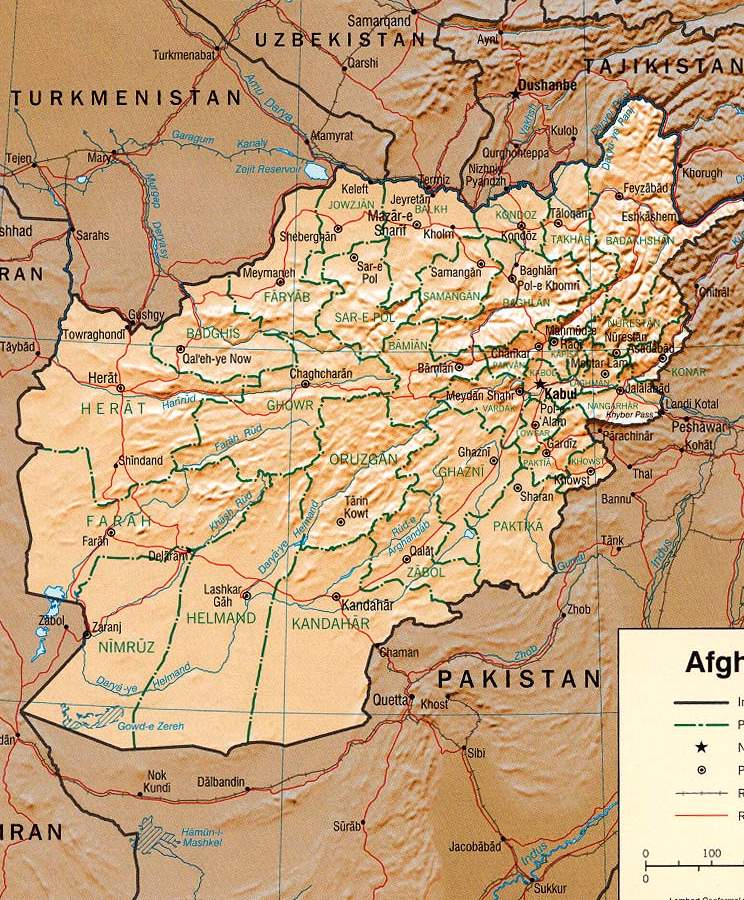
Obama’s Animal Farm: Bigger, Bloodier Wars Equal Peace and Justice
Here on Law and Disorder we recently talked with several guests on the escalation of war in Afghanistan under the Obama Administration. Last week Obama appointed General Stanley McChrystal to head the US and NATO military command in Afghanistan, – another decision revealing how Obama has restored the most notorious Bush era policies according to James Petra, a former Professor of Sociology at Binghamton University, New York. In his article titled Obama’s Animal Farm: Bigger, Bloodier Wars, Petra outlines how McChrystal’s past brutal leadership is marked by systematic torture, bombing of civilian communities and extrajudicial assassinations. Between September 2003 and August 2008, Petra writes – McChrystal directed the Pentagon’s Joint Special Operations Command which operates special teams in overseas assassinations. Petra also mentions that McChrystal is one reason why Obama is fighting to prevent the release of graphic photos that document torture by US soldiers and interrogators. Related: Mysterious Chip-CIA’s Latest Weapon Against Taliban.
Jim Petras:
- It’s very clear that Obama wants a bigger and more ferocious counterinsurgency program.
- Obama is also concerned because the entire Pakistan and Afghanistan borders are supporting resistance. Indigenous, anti-colonial forces have taken over.
- He’s going all out now, he’s pressured the puppet president of Pakistan to launch this humanitarian crime against the Pakistani people, creating 2 million Pakistani refugees, destruction and civil war.
- The overall picture that we get is a tremendous boost in militarization. In the last couple of months it’s one attack after another on the Pakistan military.
- McCrystal is gung-ho, he’s a greater asset to destroy the social networks among the resistance. Similar to Vietnam, to go into villages and assassinate local leaders.
- General McCrystal is a proponent of direct action strictly involved in US terrrorist operations. Slitting throats and strangling anyone remotely connected with the armed resistance.
- There was effort to distinguish between civilians and armed resistors. McCrystals approach is to empty the pond to catch the fish. There going in to drive out millions of people in Pakistan to catch a few thousand resistance fighters.
- This is a monstrous humanitarian disaster compared to Rwanda.
- Torture Photos: You can’t publicize the worst activities of the person you appoint to be the head honcho in this phase of the war.
- Navy Seals, Delta Force, Special Operations Command. I was at Ft. Bragg, in a debate with military officers regarding death squads in Central America. These are killing operations, no surrender. The people that go into it are psycopaths.
- That Obama appointed McCrystal to this position builds bridges back to the worst part of the Bush Administration. Obama has accepted the general paradigm of the past presidents, he has a vision of military empire building, rather than realizing that much more power is achieved in economic expansion and investment.
- The US thought they could do both, economic and military empire building, but with the loss of manufacturing and rise of financial businesses there was no counterweight to the military side of empire. American power can only be realized through a massive military commitment.
- This is a war against a people, it’s going to be a long dirty war. It’s already shaping up. It’s a cost for big oil and manufacturing, rather than a benefit.
Guest – James Petras, a former Professor of Sociology at Binghamton University, New York, owns a 50_year membership in the class struggle, is an adviser to the landless and jobless in Brazil and Argentina, and is co_author of Globalization Unmasked (Zed Books). His latest books are The Power of Israel in the United States (Clarity Press, 2006); Rulers and Ruled in the US Empire: Bankers, Zionists, Militants (Clarity Press, 2007) and Zionism, Militarism and the Decline of US Power (Clarity Press 2008)
—

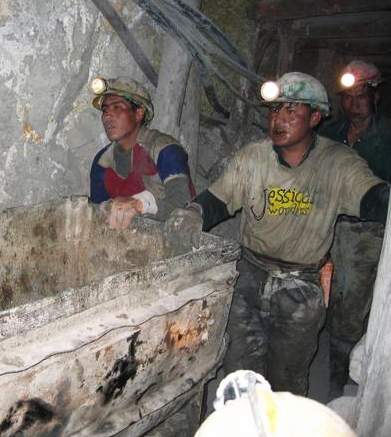
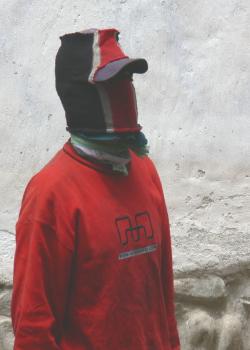
Gringo – A Coming of Age in Latin America
In the book Gringo – A Coming of Age in Latin America, author Chesa Boudin travels through parts of Venezuela, the streets of Guatemala and to protests in Santiago. Boudin’s narrative chronicles nearly a decade of on-the-road experiences in Latin America. He’s captured the transformation in Latin American politics through the voices of the wealthy and the desperately poor.
One review called Gringo, a quote – compelling firsthand account of the unregulated greed, social neglect, and deliberate misrule that has provoked so many Latin Americans to demand a better life for themselves and their children.”
Seymour Hersch says in another review, it’s quote – cheap beer, fried plantains, long dusty bus rides, radical politics, the repeated kindness of desperately poor people sharing what they have with an outsider, and Chesa Boudin’s eagerness to share what he’s seeing and what he’s feeling, with sympathy and empathy __ as he tries to sort it all out. There’s much to learn in this book.”
Chesa Boudin:
- This is a book that weaves together two different threads. One is my own personal journey, my own effort to make sense of my identity, my place in the world as a white, priveledged North American man. But also, in the context of where I was traveling, working and studying in Latin America at a time when the region was experiencing a dramatic political shift to the left.
- I had grown up in a very political family. All 4 of my parents had been very involved in the anti-war movement. Both of my biological parents Kathy Boudin and David Gilbert were incarcerated in New York State maximum security prisons.
- I grew up in two very different worlds, one of prison and one of privelege and opportunity.
- I took public buses mainly, interacted with the poorest and most humble as well as the elite rich.
- I went to Guatemala and from there I went to Chile, which was a classic example of what Naomi Klein writes about in the Shock Doctrine of the US with Pinochet imposing the neo-liberal model on the people.
- I sat for hours and hours in line to change money into pesos, I watched entire families digging through garbage on the street.
- The irony Michael is that I found time and again, the most downtrodden, the most humble, the ones living 17 people in a 2 bed room apartment that took me in. Those were the ones that were the most generous.
- When the political and economic models come out of Washington, it became difficult to fathom what another government approach would look like.
- In Venezuela, I watched the recreation of system based not on shutting people out but rather giving them a stake in the day to day functioning of their government and empowering poor people.
- Instead of having people from another country or economic class come in and tell them what they need to do.
- Venezuela is exciting, its hard to predict what may happen. Ten years into Chavez’s presidency, an opposition opinion poll places him at 60 percent.
- One of the controversies in Venezuela is the constitutional reform of term limits.
- The people voted for this not only for the president but for other offices as well, the New York Times framed it as the downfall of democracy.
- Bolivia has been my favorite country to visit, it’s a beautiful country. Visiting the mines and talking with the miners is something I use as a lens to view the country’s current politics and the political development that led to the election of Evo Morales.
- One thing I’ve noticed in Bolivia is the left has gotten much more experience being critical from the outside then from actually learning to govern from the inside.
Guest – Chesa Boudin – a Rhodes Scholar, is a student at Yale Law School and author of Gringo: A Coming-of-Age in Latin America (Scribner)
—————————————————————————————-
Censorship, Criminalizing Dissent, FBI Intrusion, Habeas Corpus, Human Rights, Impeachment, Iraq War, Prosecution of the Bush Administration, Supreme Court, Surveillance, Targeting Muslims, Truth to Power
Podcast: Play in new window | Download
Host Updates:
—

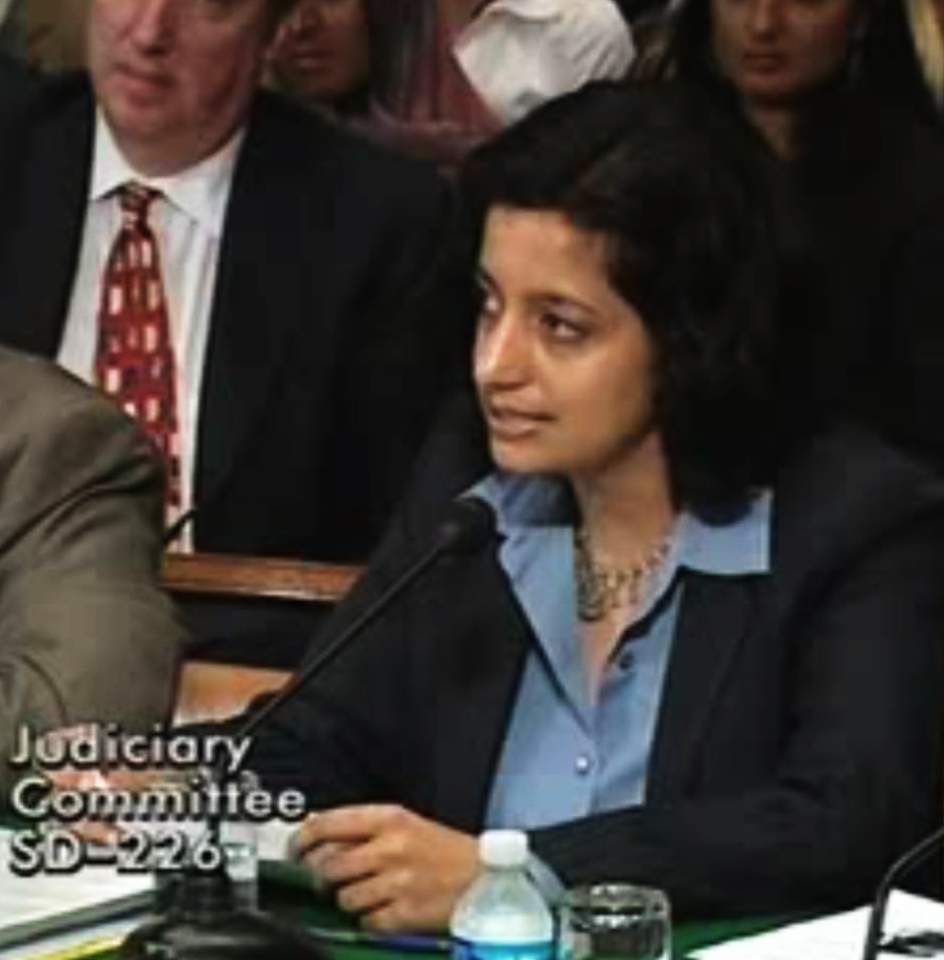
Unreasonable Intrusions Report
Last month, the Muslim Advocates released a report titled Unreasonable Intrusions: Investigating the Politics, Faith & Finances of Americans Returning Home. The report documents the systematic and widespread practice of federal agents interrogating Americans returning home after overseas travel at our nation’s borders and international airports. Muslim Advocates, a sister group with the National Association of Muslim Lawyers (NAML), which is a group of approximately 500 Muslim lawyers, law students and other legal professionals.
Farhana Khera:
- These are folks who are returning home from travel and they’re being stopped at borders, land crossings.
- After showing valid US passports, federal agents are engaging in very invasive questioning and searches of these Americans.
- Muslim or those Americans who may look Muslim.
- The questions (from border agents) go into first amendment protected areas. What mosque do you attend? How often do you pray?
- We want to educate federal policy makers, members of Congress, Homeland Security and the Obama Administration about this practice.
- Laptops, cameras and phones searched, in some cases asking about people in images, and how they particular individuals.
- Again, all of this without any evidence or suspicion.
- Ninth Circuit Decision US v Arnold, pretty much gives blanket authority to federal agents at the border to search laptops and electronic devices of law abiding Americans.
- We really need some standards in place that address the need of probable cause and reasonable suspicion before seizing personal data.
- We believe that Americans have the right to enter the country and not be compelled to answer questions, particularly about first amendment protected beliefs.
- We are giving practical advice in saying that you think this line of questioning is inappropriate. Get badge #’s of officers who have your stuff, then file a complaint.
- Traveler’s Privacy Protection Act – Proposed Legislation, to be re-introduced.
Guest – Farhana Khera, first Executive Director of Muslim Advocates and the National Association of Muslim Lawyers (NAML). Prior to joining Muslim Advocates and NAML in 2005, Ms. Khera was Counsel to the U.S. Senate Judiciary Committee, Subcommittee on the Constitution, Civil Rights, and Property Rights. In the Senate, she worked for six years directly for Senator Russell D. Feingold (D_WI), the Chairman of the Constitution Subcommittee. Ms. Khera focused substantially on the USA PATRIOT Act, racial and religious profiling, and other civil liberties issues raised by the government’s anti_terrorism policies since September 11, 2001. She was the Senator’s lead staff member in developing anti_racial profiling legislation and organizing subcommittee hearings on racial profiling.
—-


FBI Exposed: Federal Judge Orders FBI to Provide Full Muslim Surveillance Records
Last week a federal judge ordered the FBI to submit 100 documents detailing the bureau’s surveillance of Muslim leaders and organizations in Southern California and specifically, documents relating to the Council on American_Islamic Relations of Greater Los Angeles and its executive director. The court’s decision came in response to a 2007 lawsuit filed by the ACLU of Southern California that claimed the government’s incomplete and long_delayed response violated the Freedom of Information Act.
An attorney with the ACLU of Southern California says the surveillance records will show how the FBI infiltrated Southern California mosques and invasively monitored members of the Muslim community as if they were criminals.
“Truth can never be redacted. Only full disclosure will satisfy us and alleviate the pervasive fear in our communities and congregations,” said Shakeel Syed, executive director of the Islamic Shura Council of Southern California, who joins us today.
Shakeel Syed:
- It was confirmed in a court of law, under oath, that the FBI had employed informants, in one case, the informant was a former convicted felon.
- Craig Monteilh has multiple identities, he was given a different by the FBI and sent into one of the mosques.
- He embraced Islam proclaiming that he wanted to become Muslim and wanted to make his faith public.
- He abused the Islamic platform to gain trust in the community. The FBI told him the best way for you to infiltrate is to become Muslim and pretend to be a slow learner.
- The people at the mosque were alarmed when Craig Montel was encouraging others to blow up buildings in LA
- They called the FBI office on Craig Monteilh unaware that he was an informant. They brushed the report aside.
- Radiation monitoring of mosques
- We filed a FOIA request jointly not individually, which was good because what was suspected is now fully confirmed in the court of law that informants were paid as provocateurs in the area.
- In 2006, one of our members of the mosque, a student, ambushed an agent that was following him and he was apprehended by the University of Irvine campus police. We later filed a case against this individual and later never heard back from the campus police or the FBI.
- We received similar reports in our conversations with other community leaders in other areas such as Chicago, New York, Dallas, Detroit, Houston, Atlanta, Miami, San Francisco.
- It was revealed in some of the FBI surveillance documents that my private speeches were mentioned that were against the war in Iraq. Dalia Hashad – “They were in the mosque.”
- We continue to receive reports from the community on an almost ongoing basis from within the regions of Southern CA that the FBI has approached them to become informants, threatened them, intimidated them, offered them convenience of getting their naturalization papers expedited or immigration papers duly adjusted.
- I’m disgusted, but more emboldened to stand up and assert my rights.
Guest – Shakeel Syed, executive director of the Islamic Shura Council of Southern California.
———————————————————————————-
Afghanistan War, CIA Sponsored Terror, Civil Liberties, Extraordinary Rendition, Guantanamo, Habeas Corpus, Human Rights, Iraq War, Military Tribunal, Targeting Muslims, Torture, Truth to Power
Podcast: Play in new window | Download
Host Updates
———
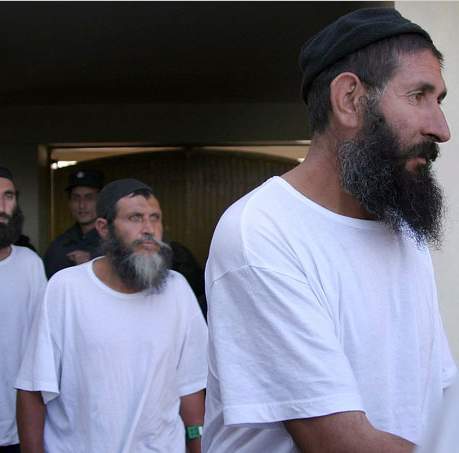
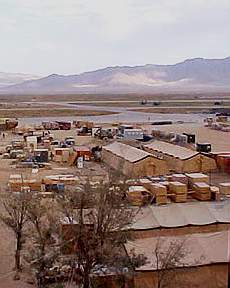

Some Prisoners at Bagram AFB, Afghanistan May Challenge Detention
Last week a federal judge ruled that some prisoners held by the US military at Bagram Air Base prison in Afghanistan have the right to challenge their imprisonment. There are more than 600 people being held at the Bagram prison in Afghanistan without charges.
The federal ruling does not apply to prisoners captured on the battlefield in Afghanistan, citizenship and location of the capture will determine if prisoners could challenge their detention in court.
Tina Foster, the executive director of the International Justice Network said that the Bagram ruling meant that changes to the Bush detention policies would go beyond merely closing Guantánamo and extend “to any place where the United States seeks to hold individuals in a legal black hole.”
Attorney Tina Foster:
- Filed writ of Habeas Corpus for the 4 detainees to challenge their detentions.
- Judge Bates: The US cannot manipulate the jurisdiction of the courts by holding people deliberately in places where the courts have not traditionally exercised jurisdiction.
- Bagram is the main military base in Afghanistan, it was an old Soviet air hangar, that’s where they’ve established a prison.
- 600 in Bagram prison.
- There are other coalition forces at Bagram AFB with military presence, but as “guests” of the US.
- US Government: Unlike Guantanamo, Bagram is in the middle of a war zone.
- Bagram was the original Guantanamo, a lot of the people at Guantanamo first spent time at Bagram.
- A few years ago, working with you Michael (Ratner) one of the happy tasks I had, was to travel all over the world, contacting the families of the detainees at Guantanamo. It also became clear that there were people locked up in other places besides Guantanamo.
- Shockingly,the Obama Administration has adopted the Bush Administration policy on Bagram. All of their legal arguments, all of their secrecy, still deciding not to disclose any information.
- What has been different than the Bush Administration, is that when Obama signed orders to close Guantanamo, he set up a task force to look at detainee policy more broadly. That report is due in July.
Guest – Tina Monshipour Foster is the founder and Executive Director of the International Justice Network (“IJN”), and serves as lead counsel in several of IJN’s legal cases on behalf detainees imprisoned without charge at Bagram Airfield in Afghanistan. Ms. Foster’s work on behalf of prisoners and other victims of human rights violations has been featured in major media outlets in the US and abroad, including The New York Times, Wall Street Journal, Washington Post, Harper’s Magazine, Smithsonian, Al Jazeera channel, and others.
From November 2004 to May 2006, Ms. Foster was an attorney with the Center for Constitutional Rights (“CCR”) and Counsel for CCR’s Guantanamo Global Justice Initiative. Prior to joining CCR, she was a litigation associate at Clifford Chance US LLP and previously served as a law clerk for Hon. Delissa A. Ridgway at the United States Court of International Trade. Ms. Foster is a graduate of Cornell Law School, where she was an editor of the Cornell International Law Journal.
——
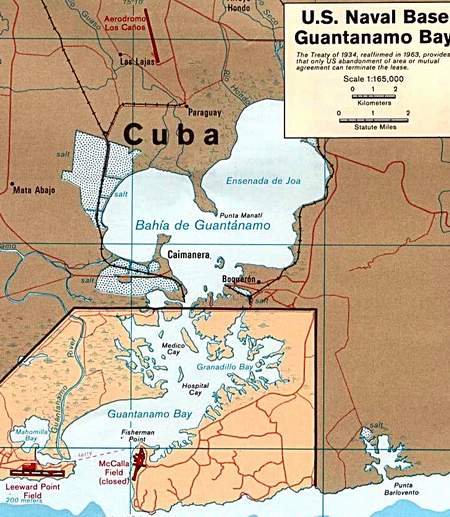
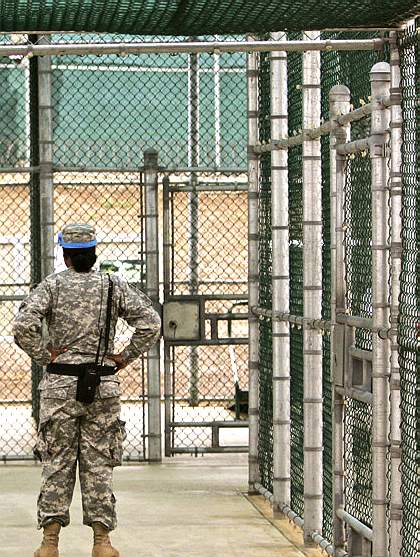
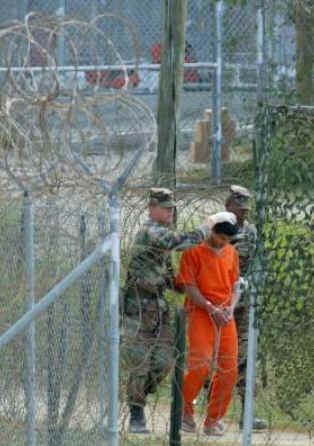
Guantanamo Bay Prison, Update
Today we talk with Emi MacLean, staff attorney for the Center for Constitutional Rights to get an update, an impression of where things stand with Guantanamo Bay prisoners, their status of Habeas Corpus, and the Obama administration’s position. There are also 17 innocent Chinese muslims called Uighurs asking, again for their release. Our guest Emi MacLean has worked with the Guantánamo Global Justice Initiative and other forms of executive detention, including secret prisons and transfers to torture.
Attorney Emi MacLean:
- More Guantanamo prisoners have left in the last weeks of the Bush Administration then the first 100 days of the Obama Administration.
- 240 people at Guantanamo right now. Approximately, 20 Guantanamo prisoners will face any prosecution.
- We’ve held more than 775 people at Guantanamo
- The people at Guantanamo right now are not there because of some greater threat assessment, they are there because of their country of nationality.
- Almost all the Europeans were released early on, almost all the Yemenis remain behind.
- A federal district judge ordered the release of the Uighers last October, the Bush Administration challenged the release.
- When we asked the Obama Administration to drop the challenge, they have yet to do so.
- I remember seeing civil liberties groups celebrating the executive order calling for the closure of Guantanamo in one year. But nothing has really changed for the reality of those men in Guantanamo. This is a consistent devaluation of the life of the men imprisoned there.
- We’ve seen the Obama Administration lawyers refuse to back away from the Bush Administration’s position on states secrets.
- It’s very hard for people to give up power.
- What makes our work difficult, is that it usually takes a couple of weeks for our communications to clear. The communication between counsels on what the Guantanamo conditions are.
- The Obama Review Team determined that the conditions at Guantanamo complied with Geneva Convention, which was certainly not what we were hearing and certainly not what we were seeing.
- The overwhelming majority of the men at Guantanamo were still in brutal conditions of solitary confinement and still reporting severe psychological and religious abuses at Guantanamo.
- No middle ground, these men should be tried or released.
Guest – Attorney Emi MacLean has worked at the Center for Constitutional Rights (CCR) with the Guantánamo Global Justice Initiative (GGJI) since June 2006. She works on issues related to Guantánamo and other forms of executive detention, including secret prisons and transfers-to-torture. She helps coordinate the pro bono attorneys representing the hundreds of men still detained at Guantánamo and supports CCR’s direct representation of a number of current detainees.
In addition, Emi is involved in civil actions brought on behalf of former prisoners released from Guantánamo (Rasul v. Rumsfeld and Celikgogus v. Rumsfeld) and actions under the Freedom Of Information Act (FOIA) challenging the government’s refusal to disclose information about the NSA’s warrantless surveillance of Guantánamo attorneys (Wilner v. NSA) and the CIA’s secret detention program (Amnesty International, CCR, et al. v. CIA). In addition to direct litigation, Emi’s work with CCR includes legislative and international advocacy.
Emi has previously worked or volunteered with the United States Senate Judiciary Committee, Center for Justice and International Law (CEJIL), Human Rights First, and the American Civil Liberties Union (ACLU). Prior to law school, Emi worked with South Africa’s National Association of Democratic Lawyers (NADEL), and Médecins Sans Frontieres (Doctors without Borders). Emi graduated magna cum laude from Harvard College and Georgetown University Law Center.
———————–
Afghanistan War, Civil Liberties, Criminalizing Dissent, Extraordinary Rendition, Guantanamo, Habeas Corpus, Human Rights, Iraq Veterans, Iraq War, Prosecution of the Bush Administration, Supreme Court, Surveillance, Targeting Muslims, Torture
Podcast: Play in new window | Download
Updates:
————
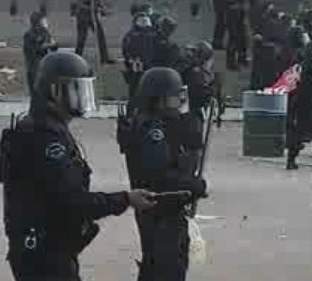


13 Million Dollar Payout in May Day LAPD Police Abuse Cases
In a landmark class action lawsuit settlement, the Los Angeles city council agreed to pay nearly 13 million dollars to those injured or mistreated in the 2007 May Day demonstration in MacArthur Park. As the march ended, LAPD riot police were filmed by camera crews using excessive force, firing rubber bullets and striking people with batons. Dozens were injured in the melee and the footage was seen around the world. The 13 million dollar settlement was part of a larger portion of nearly 300 May Day claims.
Carol Sobel:
- There was an immigrants rights march in MacArthur Park in Los Angeles on May 1st 2007, there has been for the last 7 years. The police didn’t want to give the group a permit to march in the streets.
- There are about 20 lawyers on this case, the National Lawyers Guild, the Guild’s Police Accountability Project and MALDEF, the Mexican American Legal Defense Education Fund.
- As around 10 thousand people approached the park, police “forgot” to direct people into the park.
- The rally was at the Northwest corner of park, so marchers had to cross an 8 lane highway that divides the park. This created chaos of which the problems arose.
- There was no instruction, people didn’t know where they were supposed to go.
- Then people got near police on motorcycles, they used their motorcycles to hit protesters. This was happening as an Aztec circle dance performance closed the march and opened the rally.
- Some protesters through trash, plastic water bottles at police. It was heard that the police said “We need to get rid of these people now.” Police were not giving orders to disperse, they simply said “move”.. to the 10 thousand people in the park.
- The officers were speaking only English, the crowd spoke almost all Spanish.
- Families had no idea why the police were coming with riot gear. While police were saying to move, people were thinking, “well I didn’t do anything wrong, they could’nt be talking to me.”
- So officers began knocking people down and hitting people, firing pellets, it was total chaos.
- 140 rounds of less lethal munitions were randomly fired into the crowds.
- The police report also stated there was no probable cause, no reason to go after the marchers.
- Lesson: It’s very difficult to change the culture of a police department. The police department can’t engage in this behavior, because we can’t afford it as a city.
Guest – California civil rights attorney Carol Sobel, who represented some of the injured. In 2000 Carol was struck by police pellets while serving as a legal observer during the Democratic National Convention.
———————–



Nora Eisenberg: When You Come Home
We’re pleased to have with us Nora Eisenberg, she’s the author of the recent book When You Come Home. It is a powerful novel that acknowledges the physical and psychological effects of veterans returning from Operation Desert Storm-The Persian Gulf War (2 August 1990 – 28 February 1991). In this beautifully written ant-war fiction, Nora delves into the corrosive effects post war combat has on the families and communities that are called on to nurture veterans returning home. Mimi is the main character who’s husband was killed in Vietnam, her 20 year old son Tony, a marine reservist, has returned from the Gulf War and there’s Tony’s childhood sweetheart, Lily who was raised by Mimi after her parents disappeared.
One book review describes When You Come Home this way: “In 1991, troops sent to Iraq for the first Gulf War returned home with a litany of physical, neurological, and psychological symptoms that collectively became known as Gulf War syndrome, a subject seldom dealt with in works of fiction. Eisenberg poignantly demonstrates that casualties of war occur both on and off the battlefield and ironically illustrates the vivid consequences when those in charge of veterans’ postwar care fail to meaningfully “support our troops.”
Nora Eisenberg:
- The First Gulf War – “The Good War”, 5 weeks of censorship and fabrication. Fabricated by a Washington based PR firm – Hill and Nolton. The campaign was headed by Craig Fuller. Fuller was also Chief of Staff for George H.W. Bush. Fuller took charge of the campaign to impress the public of what villians the Iraqis were.
- The firm brought this young girl to testify in front of a Congressional Committee – She claimed to work at a maternity ward in Kuwait. “The mean Iraqi soldiers” came in and hurled nearly 300 babies from their incubators and were left to die on the floor.
- This young girl was part of the Kuwaiti Royal Family, her father was Washington / Kuwait ambassador.
- All part of a 10 million dollar PR campaign with Hill and Nolton.
- Aside from the no-fly zones and sanctions, the deaths of Iraqis were massive and continuing.
- I’ve been following the deteriorating health system in Iraq and the rise of disease leading to the deaths of 2 million Iraqi children.
- I started writing this book with the “bad” war looming and with a sense that the ’91 war wasn’t over at all.
- I thought, are we going to kill millions again and get off scott-free, does it really work that way?
- Gulf War Illness, even among progressive people, there remains very little awareness of what this disease is. It attacks the respiratory system, the nervous system, it’s a neuro-toxic event.
- These soldiers got sick, immediately. Some say they got sick after swallowing an anti-nerve gas pill.
- When they were around the insecticides that were soaking the tents, they felt sick immediately, vertigo, stomach cramps.
- The soldiers loved ones, pets and wives coming down with similar symptoms, by proximity.
- It’s taken almost 20 years for Congress to say what the veterans already knew, that they were poisoned.
- A report delivered by high profile doctors at Roberta White say the soldiers were exposed to neuro-toxins. These were not neuro-toxins from Saddam Hussein.
- Those are main culprits, there are other terrible exposures that came out in a report last November.
- Such as the exposure to sarin in a weapons depository that affected 2-3 hundred thousand US soldiers.
- Nearly 15 thousand have died from Gulf War Illness. We have nearly 400 thousand US soldiers coming back as patients / nearly 40 percent are psychiatric patients.
Guest – Nora Eisenberg, New York City novelist and professor of English at the City University of New York (LaGuardia) and directs CUNY’s Faculty Publications Program. The War at Home ws a Washington Post Rave Book of the Year for 2002 and Just the Way You Want Me was awarded the 2004 Gold Prize in General Fiction from Foreword, the weekly of independent publishing. Her short stories, essays, and reviews have appeared in The Village Voice, Partisan Review, the LA Times, Tikkun., and numerous anthologies.
——————————————————–
Civil Liberties, Extraordinary Rendition, Guantanamo, Habeas Corpus, Human Rights, Iraq War, Military Tribunal, Surveillance, Targeting Muslims, Torture, Truth to Power
Podcast: Play in new window | Download
Updates:
—
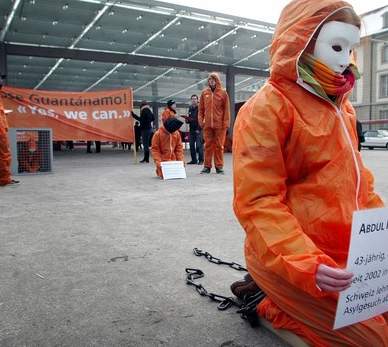
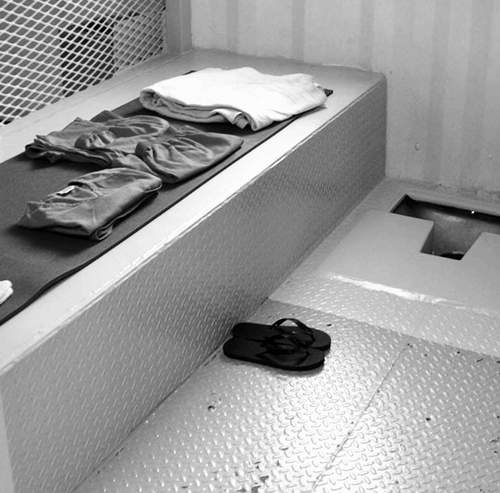
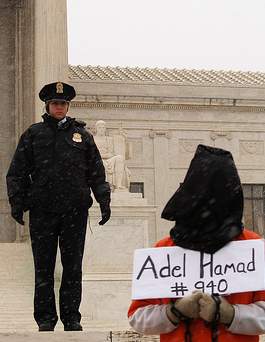
CCR Releases Independent Report on Current Conditions at Guantánamo, Calls for Closure of Camps 5, 6, and Echo
The conditions at Guantanamo Bay Prison still violate the law according to an independent report released by the Center for Constitutional Rights. The report partially compiled from attorney eyewitness accounts and detainees, has found that the conditions of confinement violate Geneva Conventions and International human rights law. Among the violations are the severe isolation of solitary confinement, psychological abuse, abusive force_feeding of hunger strikers, religious abuse, and physical abuse or threats of violence from guards and from the Immediate Reaction Force (IRF) team.
Pardiss Kebriaei:
- The executive order that President Obama issued on Jan 22 tasked the Sec. Of Defense with conducting a review of Guantanamo.
- Basically, asking the person who was in charge of Guantanamo for years to investigate operations there.
- It’s more on of an internal review than an outside independent one and its not surprising that they think all is fine and well in GTMO
- We have the impression that they’ve only spoken with about a dozen detainees out of the 240 plus.
- Detainees in Camp 6 are held in cells that are 6 X 8 feet. there are no windows. They are in them for 20-22 hours a day.
- There are no openings except a metal food slot, and a window into the interior of the prison that allows guards to look in.
- Their compliant behavior within Camp 6 determines whether they can go to an open air cell for two hours and pace.
- In Camp 5, it is similar, no natural air or light, the lights are on 24 hours a day,
- One detainee who is 17 is smearing feces around the cell and banging his head on concrete.
- As a consequence he is subject to physical abuse by the Immediate Reaction Force IRF team, (riot squad style guards) who beat him up, and spray tear gas in the cell.
- This is the response to someone who needs, competent caring psychological help.
- In January, there were about 70 detainees on hunger strikes. They use force feeding chairs. The chairs are made by a company in Iowa who calls them “padded cells on wheels”
- The person is fully strapped to this chair while a 12 inch tube is forcibly inserted up their nose and down into their stomachs to allow about a 1.5 liter of formula to be pumped into their stomachs.
- Often during this force feeding process, there are guards around them humiliating them, making jokes.
Guest – Pardiss Kebriaei, Staff Attorney with the Guantanamo Global Justice Initiative, at the Center For Constitutional Rights.
——-



Amnesty International-Fuelling conflict: Foreign arms supplies to Israel/Gaza
Last month Amnesty International released an in depth report detailing fresh evidence that the weapons used during the Israel Gaza conflict earlier this year were supplied abroad. The report tracked countries supplied arms to both Israel and Hamas. Weapons such as white phosphorus, anti-tank mines, air delivered munitions and flechettes which are 4 centimeter darts packed by the thousands into artillery shells.
The report also unearthed multiple violations of humanitarian law and in some cases, war crimes. Flechettes, for example are not specifically banned under international humanitarian law. but they contributed to unlawful killings of and injuries to civilians.
Colby Goodman:
- There were fragments from the US made Hellfire missile where 3 paramedics were killed.
- International military law is clear about attacks on medical personnel.
- White phosphorus burns at a temperture of 1500 degrees.
- Using white phosphorus indiscriminately as a smoke screen creates a situation where it injures and kills civilians.
- Israel had not used white phosphorus in Gaza before. Watch video
- White phosphorus burns right through the skin to the bone, very difficult to stop.
- Palestinians doctors did not know how to treat white phosphorus burns, so civilians were dying from minor burns. Some WP munitions are US made and some are not.
- Potential violations of the Arms Control Act
Guest – Colby Goodman, Policy Director for Military, Security, and Police Transfers at Amnesty International USA (AIUSA). Colby he leads AIUSA’s research and analysis on issues related to conventional arms control and child soldiers in support of AIUSA’s major campaigns and issue or country advocacy.
—–



EPIC RECESSION AND GLOBAL FINANCIAL CRISIS
There are other economic solutions and proposals that are critical of the 787 billion dollar Economic Stimulus Plan. Dr. Jack Rasmus’s recent article in Z magazine titled Obama’s Economic Plan vs. An Alternative lays out a different recovery program in 20 measures that could stimulate job growth, run an alternative tax plan and a push through single payer health plan. His Z magazine article is a snapshot from his newly published book titled Epic Recession and Global Financial Crisis.
Dr. Jack Rasmus: – “We are in an Epic Recession phase now, not a normal recession.”
- Banks come first, trickle down. Maybe they’ll give something to the rest of us which they don’t.
- We’ve see a virtual bankers strike for the last six months, we’ve thrown somewhere between 2 and 3 trillion dollars at the banks with the hope they’ll loan a bit out with a lower interest rate. Of course, we know they’re not doing that, they’re paying each other big bonuses, dividends and acquiring each other.
- The commercial money center banks are broke. Zombie banks, banks by name only.
- It’s a solvency crisis, the banks are in default and are not going to loan.
I) Stimulus Bill – 789 Billion of Tax Cuts and Spending
- Designed to slow the accelerating collapse of consumption.
- Not designed to reverse massive unemployment which is gaining momentum. Since 2007 – 13 million unemployed. 20 million unemployed by 2009.
- We’re losing 400 billion dollars just from the now 10 million unemployed. Add in 401k collapse, stocks collapsing, credit cards cut off, long term rates rising, reduction in hours worked occuring, state and local tax and fee increases, state and local funds decreasing.
- Obama is changing rhetoric from creating 3 million new jobs to saving and creating 3 million jobs.
II) Big Bank Bailout
- What to do about the bad assets of commercial banks.
- Securitize Markets – Auto / Credit Cards/ Student Loans
- Insurance Scheme Proposal – Instead of giving banks money they’ll insure them. Taking the Citigroup Bailout Plan Model – 300 Billion back up.
III) Housing Industry – Mortgage modification
- Give the mortgage lenders money – 600 Billion – and hopefully they’ll stop going on strike and they’ll lower the interest rates.
Solutions:
- No way out of housing crisis without nationalizing housing market.
- Create a new government agency and properly fund it, – 900 billion dollars – it would create a small residential and business loan agency.
- Go in there and reduce long term principle and interest to long term averages that existed before 2002’s run up of huge speculation.
- That would be for all loans, not just the ones in foreclosure. Which would stimulate consumption not just shore up housing industry.
- Similar to the Homeowners Loan Corporation of the 1930s
- Auto Companies – You can’t just have 3 US Auto Companies surviving. They have to be nationalized if they’re going to put that much government money into them.
- We don’t give them a penny unless they stop their investment and expansions overseas.
- Ford is building big plants in Petersburg Russia. GM is building big plants in Shang Hai, China. Immediately they should be required to build cars with proper mileage.
- Bring back 2 trillion of the 6 trillion that’s been stuff away in offshore tax havens in the last 20 years.
Guest – Author and Professor, Jack Rasmus teaches in the Department of Economics and Politics at St. Mary’s College, Moraga, California.
—————————————————————-
Afghanistan War, Civil Liberties, Extraordinary Rendition, Guantanamo, Habeas Corpus, Human Rights, Iraq War, Supreme Court, Surveillance, Targeting Muslims, Torture, Truth to Power
Podcast: Play in new window | Download
The First 100 Days – Part 3

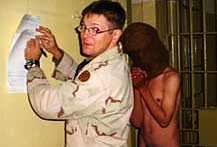

Private Military Contractors – Susan Burke
We go now to look at the abuse of force by Private Military Contractors and their role in illegal torture tactics and interrogation. In one case currently in litigation, four former Abu Ghraib detainees are suing two U.S. military contractor corporations and three individual contractors. The four were wrongly imprisoned, tortured and later released without charge.
According to the complaints, the defendants abused detainees physically and mentally and then destroyed documents, videos and photographs; prevented the reporting of the torture and abuse to the International Committee of the Red Cross. They actually hid detainees and other prisoners from the Red Cross; and misled non_conspiring military and government officials about the state of affairs at the Iraq prisons.
The defendants are CACI International Inc. and CACI Premier Technology, Inc., of Arlington, Va.; L-3 Services Inc., an Alexandria, Va.-based division of L-3 Communications Corp. and three individual contractors, Adel Nakhla, of Maryland, Timothy Dugan, of Ohio, and Daniel Johnson, of Seattle.
Susan Burke:
- Blackwater case pending before judge reggie walter in district of columbia federal court.
Nassir massacre case
- representing the families and people injured in that massacre. in the meantime the justice dept is looking into indicting blackwater soldiers
- Titan and CACI International Inc
- The CACI International Inc case on interrogation, the court says that this interrogation company could be liable because they exercised corporate control over the interrogators.
- The same court said the translator company L3 could not be held liable because they turned over the translators to the military.
- There are appeals on both issues, they’ve been briefed and are waiting for oral arguement.
- during the appeals, Susan’s lawfirm has been contacted by many additional victims.
- “As I litigate these cases, it struck me that we really need to stop these corporations from acting as if they are the United States.
- All these companies are trying to wrap themselves in sovereign immunity, wrap the flag around themselves. and say that we simply can’t even look at what they did.
- One of the companies CACI International Inc sued for defamation, because somebody dared to criticize them. Rhandi Rhodes the talk show host.
- I would like to see immediately a real push to make the government’s position real clear.
- Corporations are not the United States and should not automatically be entitled any type of immunity.
- The Bremer order which has been in effect has insulated them from being sued in Iraq.
- As a result the Iraqis who want to obtain justice have to come to the United States.
- By allowing there to be a derogation to evade, the laws in black and white that are on the decks right now that say,
you can not hire soldiers.
- By the fact that those laws are being ignored and we’re increasing our firepower with mercenaries, the current administration has essentially bought its way from having to draft people.
- Its a troubling thing because we’ve created a class of mercenaries.
- They define themselves as mercs
- They are soldiers for hire, they’ll fight for anyone who pays them.
- That’s why we have to clamp down and enforce the law against the existence of mercenaries,
- We’ve got to take away the veneer of legitimacy, what the defense industry has thrown over the illegal mercenary industry.
—————————————-



Wide View – Research Professor of Law, Michael Tigar
Michael Tigar is an expert in Constitutional Law and the Supreme Court. He has represented Terry Nichols of the Oklahoma City Bombing, Angela Davis, and Lynne Stewart. Tigar outlines several steps the Obama Administration must do to turn back the major breaches in U.S. civil liberties.
Michael Tigar:
- There is now a systematic breaking down of all barriers against government intrusion into the private lives of people.
- Alien Enemy Combatants: A creation of a new class of people who are thought to be utterly right-less, both as to whether they can be detained, the conditions of their detention, and the manner in which they can be held and interrogated.
- Meanwhile, we have legal fictions such as the Vice President saying he’s neither a member of the executive or legislative branch, and therefore being subject to the rules of both is subject to the rules of neither.
- We have justice system staffed with people whose only qualification is their asserted ideological purity.
- We have two aggressive wars, all done to the tune of the most massive federal debts in history.
- This, accompanied by the largest transfer of wealth from the poor, and working class to the already wealthy, coupled with the dismantling of regulatory barriers of how greed and avarice operate.
- It is the lack of any significant organized resistance from legislators, and with some few bright exceptions, judges and lawyers that define for us the task that lies ahead.
- Eric Holder, a good lawyer, was among the group of people in the Clinton administration that even though they had all the evidence, that they would not prosecute Pinochet.
- National State Secrets: the case of journalist Quentin Reynolds who took a ride on an Air Force jet and it crashed, his widow sued under the federal tort claims act saying that she thought there was negligence. The United States convinced the Supreme Court that to disclose the reasons why that plane crashed might involve state secrets, and that she should not be able to sue.
- Sixty years later the maintenance file on that plane was on unsealed. It turned out that it was a routine maintenance error that caused the crash. Behind the curtain of states secrets is illegality and mendacity.
- How many years did it take to get Pinochet for any kind of proposed criminal accountability, almost 20, because of states secrets.
- The tort system, that is the way we enforce rules about safe products, it’s the way that we enforce the rules about the toxic substances that poison people, it’s the way that we deal with the kleptocracy that rules wall street.
- It’s so well tested – Marbury v Madison 1803 – Chief Justice Marshall said that he could decide a case was unconstitutional.
Guest – Michael Tigar, a criminal defense attorney who has represented some of the country’s most controversial clients. He is also a member of the Duke University Law School faculty.
——–
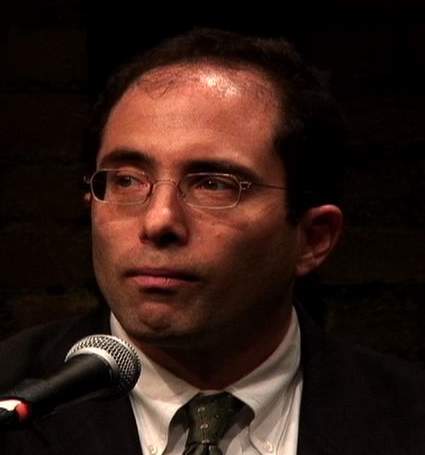
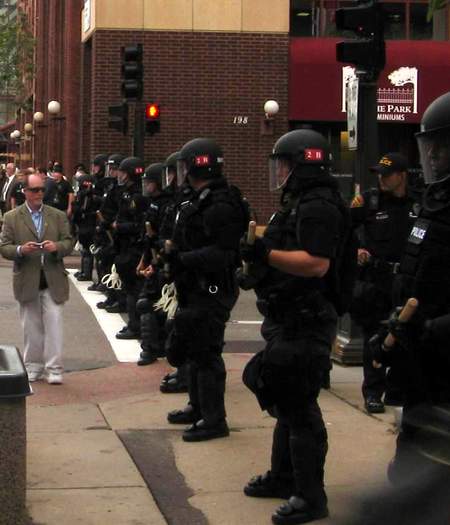

Jonathan Hafetz: Enemy Combatant:
In June of last year, an en banc Federal Appeals Court in Virginia ruled 5-4 that the Bush Administration could subject Ali Al-Marri to indefinite detention even though he was a resident of the United States. The court in the fourth circuit ruled that US residents could be locked up indefinitely as enemy combatants even though they were never charged with a crime. Al-Marri is the only enemy combatant currently in detention and without charges in the United States.
Jonathan Hafetz:
- Can the president declare legal residents including American citizens, enemy combatants, deprive them a right to a trial and hold them indefinitely.
- This, based on the idea that there is a global and never ending war on terror.
- Though on sovereign soil, no right to habeas corpus. He was declared an enemy combatant, the case was lost in an embank in the fourth circuit
- Why is this case so critical to liberty in the United States . . . ?
- The five judges who ruled against the case, said essentially that there must be this power to effectively detain people in the United States to prevent terrorist attacks.
- Ruling: the president can label legal residents including American citizens an enemy combatant in the United States, without a trial, no habeas, hold them indefinitely.
- It’s the idea of the president to use the military to seize people including citizens from their home or places of work.
- A very dangerous power to allow any president to have, it corrupts the justice system, it can be used as a weapon,
- Seven years of these cases of assertion of executive power, and the courts have not answered this fundamental basic question, who can be detained by the military, who is a soldier and who is a civilian?
- All that is stated is that if someone picks up a weapon on the battlefield, that person can be a soldier, but in the most extreme cases in the war on terror – – such as being picked up in the United States as a soldier in the extended geographic concept of the war on terror – – the courts have not grappled with whether there is habeas in those cases.
- Even the judges who ruled against us did say that it included American citizens.
Guest – Jonathan Hafetz, Staff Attorney at the American Civil Liberties Union, National Security Project.
———————————————–


War Powers – Jules Lobel
Co-host Michael Ratner and Jules Lobel have litigated 14 cases concerning the power to go to war. “The least effective area of law is holding back the use of war powers.” In the Bush Administration, there was an excessive use in the power to go to war, in Afghanistan, Iraq and around the world. Jules Lobel has testified in front of Congress recently to get a more restrictive law passed by Congress that would actually hold back presidential war making. Unfortunately, Congress passed the Authorization To Use Military Force to go to war on executive order in the name of national security.
Attorney Jules Lobel:
- The president shall not start a war without congressional approval.
- That would not only reverse what the position was in the last 8 years, but the last 50 years.
- For example Iran, there’s all this speculation that the US will attack Iran.
- I think if Obama says I will not attack Iran without Congressional approval, a signal then to Iran that the US will have to fiddle with Congress and no immediate threat.
- The point is the president should not be making this decision on his own!!!
- Presidents for the last 50 years have asserted the president has a right to use US force abroad,
not in self defense but when some vague notion of our national security is at stake.
- I think Obama should say that we will clearly reverse this.
- What the Bush and Clinton administration which is we can go to war in violation of the UN charter
- The US has signed to agree and abide by UN Charter that only allows the US to go to war in two circumstances.
- One is self defense of an attack against us. Second is we think there’s a grave threat of national security or world peace.
- We have a right to go the security council and get them to authorize, and we did so when Iraq attacked Kuwait.
- Ok for Obama administration to continue to use force in Afghanistan under constitution and UN charter?
- Congress authorized a very narrow use of force against Al-Qaida
- Still we have to decide, whether or not its legal, the best policy of approach,
- The model is focused on war and not criminal justice.
- Unfortunately they have a narrow authorization, which the Bush administration has argued for a much broader
- I don’t think they have authorization to use force against people in the United States
- Jules: when I testified before Congress I said we should put in a war powers act that doesn’t violate our treaties.
- The restraints on the dogs of war shouldn’t be just from the US Congress, because they often go along with unreasonable executive persuasion, such as the Gulf of Tonkin and the AUMF
- There has to be enforcement at least of the International treaties, even though the political elite have ignored it.
- Jules: i think the legislation that I testified on of possibly getting through with some amendment or beefing up the war powers act and making it effective.
- This was mostly done in secret, secret memos, I think Obama should publish the secret memos.
- We need to publish and expose what was done in secret, including memos written by the DOJ, which should never be secret.
- Legal memos: Obama can de-classify this huge slew of material that would indicate just how far off the rails the Bush administration was.
- Yes on prosecution to bring accountability, there is a very basic step preliminary to building evidence and cases, you have an institutional precedence to follow executive authority.
Through the U.S. Center for Constitutional Rights, Jules Lobel has litigated important issues regarding the application of international law in the U.S. courts. In the late 1980’s, he advised the Nicaraguan government on the development of its first democratic constitution, and has also advised the Burundi government on constitutional law issues.
Professor Lobel is editor of a text on civil rights litigation and of a collection of essays on the U.S. Constitution, A Less Than Perfect Union (Monthly Review Press, 1988). He is author of numerous articles on international law, foreign affairs, and the U.S. Constitution in publications including Yale Law Journal, Harvard International Law Journal, Cornell Law Review, and Virginia Law Review. He is a member of the American Society of International Law.
———————————————————————-









































